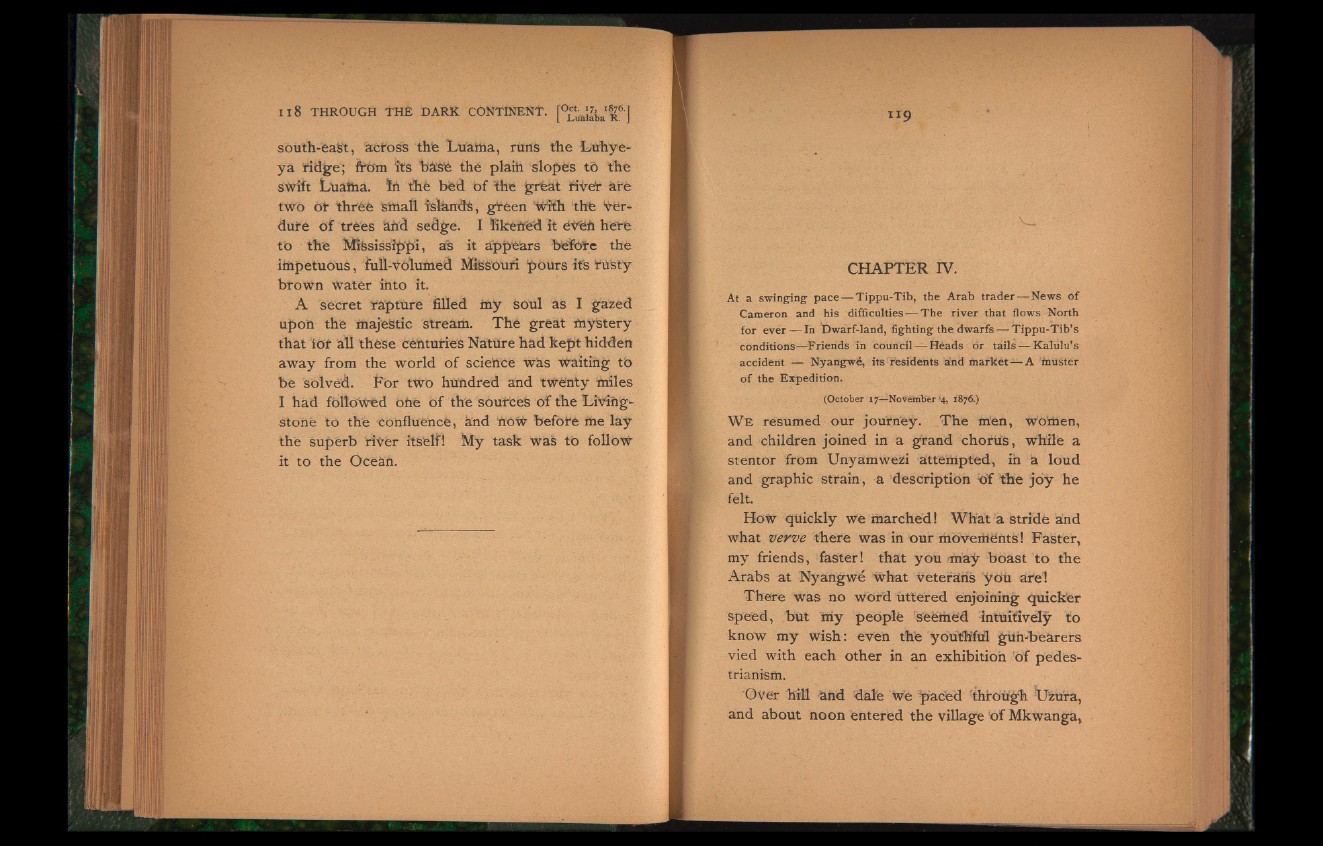
sbuth-eafet, across the Luattia, runs the Luhye-
yà rìdge; frbm its bâàfe thè plaih slopes tò thé
swift Luataa. ìli thè bed bf thè grfeat fiéefr are
twò òt thrèè Is'taafl fsïàndè, gtèen Wîth 'thè pèrdute
Òf trées hiicl sedge. I lïkèffëd it éVeh hèrè
to thé Mississippi, afs it appears before thé
impetuous, full-Vôlurned Mfesoüri poürs ifs ïusty
brown Watèr into it.
A secret rapture filled taÿ Soul âs I gazed
upon the taajefetic streâta. Thé great taÿfetery
that ibi all thèse centuries Natüre had kept hidden
away from the world of sciettce was Waiting tb
be solved. For two hundred and twenty tail es
I had followed bfte bf the sources of the Livingstone
tb the confluence, and ïïoW before ine lay
thè supèrb rivèr itself! Mÿ task was tb follow
it to the Ocean.
CHAPTER IV.
At a swinging pace— Tippu-Tib, the Arab trader— News of
Cameron and his difficulties— The river that flows North
for ever— In Dwarf-land, fighting the dwarfs—-Tippu-Tib’s
conditions—’Friends in council— Héads or tails — Kaliilu’s
accident — Nyangwé, its residents a'nd markét— A fniister
of the Expedition.
(October 17—November *4, 1876.)
We resumed our journey. The ta'en, WO'taen,
and children joined in a grand chonis, Whilè a
stentor from Unyamwezi attempted, in a loud
and graphic strain, a description b f the joy he
felt.
HoW quickly we marched! What a stride and
what verve there was in bur movements’! Faster,
my friends, faster! that you may boast to the
Arabs at Nyangwé what veteraris ybù are!
There was no word Uttered enjoining quicker
speed, but ihy people 'seemed intuitively to
know my Wish: even thè ybutfHM gUh-beàrers
vied with each other in an exhibition 'of pedes-
trianism.
Over hill -and dale We paced cthrbUgh TJ^tfra,
and about noon entered the village b f Mkwanga,